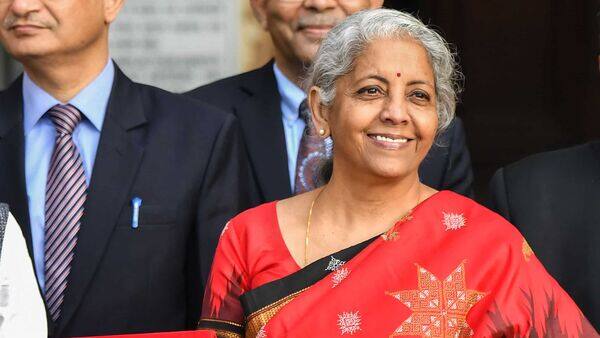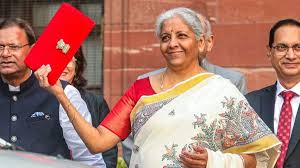Finance Ministry Caps Arbitration Value at ₹10 Crore
The Finance Ministry has recently announced a significant change in the arbitration framework for government contracts. The new directive caps the value of arbitrations at ₹10 crore. This move aims to streamline dispute resolution processes and enhance efficiency in handling government-related arbitrations. The decision is part of the broader efforts to improve the governance framework and reduce the burden of high-value disputes on the arbitration system.
Details of the Cap
The Finance Ministry’s new directive sets a maximum limit of ₹10 crore for arbitration cases related to government contracts. This cap is intended to ensure that disputes of higher values are resolved through alternative mechanisms, thereby expediting the resolution process for lower-value disputes. By capping the arbitration value, the government aims to foster a more efficient and cost-effective dispute resolution environment.
Impact on Government Contracts
The introduction of this cap is expected to have a significant impact on government contracts. Contractors and stakeholders involved in government projects will need to be more diligent in their contract management to avoid disputes that could escalate beyond the ₹10 crore threshold. This move is anticipated to encourage better compliance with contractual obligations and reduce the incidence of disputes requiring arbitration.
Legal and Administrative Implications
From a legal perspective, the new cap is likely to influence the strategies employed by parties in government contracts. Legal professionals will need to adapt to the new limit, ensuring that they provide adequate counsel to clients on managing and mitigating risks associated with government contracts. Administratively, this change will require updates to existing arbitration policies and procedures within various government departments.
Industry Reactions
The capping of arbitration values has elicited mixed reactions from industry stakeholders. While some view it as a positive step towards quicker dispute resolution, others are concerned about the potential challenges in resolving high-value disputes through alternative mechanisms. Overall, the industry is closely monitoring the implementation of this directive and its implications on future government projects.

Why This News is Important
Streamlining Dispute Resolution
The cap on arbitration values is a crucial step towards streamlining dispute resolution processes. By limiting the value of arbitrations to ₹10 crore, the government aims to ensure quicker and more efficient resolutions of lower-value disputes. This is particularly important for maintaining the momentum of ongoing projects and preventing prolonged legal battles that can delay project completion.
Enhancing Efficiency in Government Projects
Government projects often involve significant financial investments and complex contractual obligations. The new cap will enhance efficiency by encouraging parties to resolve lower-value disputes more swiftly. This will help in reducing the backlog of arbitration cases and ensure that government projects proceed without unnecessary delays.
Reducing Litigation Costs
High-value arbitrations can be expensive and time-consuming. By capping the value at ₹10 crore, the government is also aiming to reduce the overall costs associated with dispute resolution. This is beneficial for both the government and contractors, as it allows for more resources to be allocated to project execution rather than legal fees.
Encouraging Contract Compliance
The new directive is expected to encourage better compliance with contractual terms. Knowing that higher-value disputes will need alternative resolution mechanisms, contractors may be more diligent in adhering to the terms of their contracts to avoid complications. This will lead to smoother project execution and fewer disputes.
Implications for Future Policies
The introduction of the arbitration cap sets a precedent for future policies related to dispute resolution in government contracts. It reflects the government’s commitment to improving governance and efficiency in handling contractual disputes. This move is likely to influence future policy decisions aimed at further enhancing the arbitration framework.
Historical Context
Previous Arbitration Framework
Historically, there has been no cap on the value of arbitrations for government contracts. This often led to prolonged and costly arbitration processes, especially for high-value disputes. The absence of a cap meant that even minor contractual disagreements could escalate into significant legal battles, straining both financial and administrative resources.
Changes in Arbitration Policies
Over the years, the Indian government has made several changes to arbitration policies to make dispute resolution more efficient. These changes include amendments to the Arbitration and Conciliation Act and the establishment of institutions like the NITI Aayog to oversee arbitration reforms. The new cap on arbitration values is a continuation of these efforts to streamline and modernize the arbitration process.
Impact of Previous Reforms
Previous reforms have aimed at making arbitration a more viable and attractive option for dispute resolution. Initiatives such as fast-track arbitration procedures and the introduction of institutional arbitration have been implemented to reduce the time and cost involved. The current cap on arbitration values builds on these reforms to further enhance efficiency.
Global Practices in Arbitration
Globally, various countries have adopted different approaches to arbitration, often setting thresholds for different types of disputes. The cap introduced by the Indian government aligns with global best practices where similar caps are used to streamline dispute resolution processes and ensure that high-value disputes are managed appropriately.
Future Prospects
Looking ahead, the cap on arbitration values is likely to be a significant factor in shaping the future of government contract management in India. It sets a clear precedent for future reforms and highlights the government’s focus on improving efficiency and reducing the burden of dispute resolution on the arbitration system.
Key Takeaways from Finance Ministry’s Cap on Arbitration Value
| Serial Number | Key Takeaway |
|---|---|
| 1 | The Finance Ministry has capped the value of arbitrations related to government contracts at ₹10 crore. |
| 2 | This cap aims to streamline the dispute resolution process and enhance efficiency. |
| 3 | The cap is expected to reduce litigation costs and encourage better compliance with contractual terms. |
| 4 | The decision aligns with global best practices in arbitration and builds on previous reforms. |
| 5 | Industry reactions are mixed, with some stakeholders supporting the move and others concerned about high-value dispute resolutions. |
Important FAQs for Students from this News
Q1: What is the new arbitration value cap introduced by the Finance Ministry?
A1: The Finance Ministry has capped the value of arbitrations related to government contracts at ₹10 crore.
Q2: Why was the arbitration value cap introduced?
A2: The cap was introduced to streamline the dispute resolution process, reduce litigation costs, and enhance efficiency in handling lower-value disputes.
Q3: How will this cap affect government contracts?
A3: Contractors and stakeholders will need to manage contracts more diligently to avoid disputes that exceed ₹10 crore. This is expected to encourage better compliance with contractual obligations.
Q4: What are the legal implications of this cap?
A4: Legal professionals will need to adapt to the new limit, ensuring they provide adequate counsel on managing risks in government contracts. It will also require updates to arbitration policies and procedures.
Q5: How does this cap compare to global practices in arbitration?
A5: The cap aligns with global best practices where similar thresholds are used to streamline dispute resolution processes and manage high-value disputes appropriately.
Some Important Current Affairs Links


















